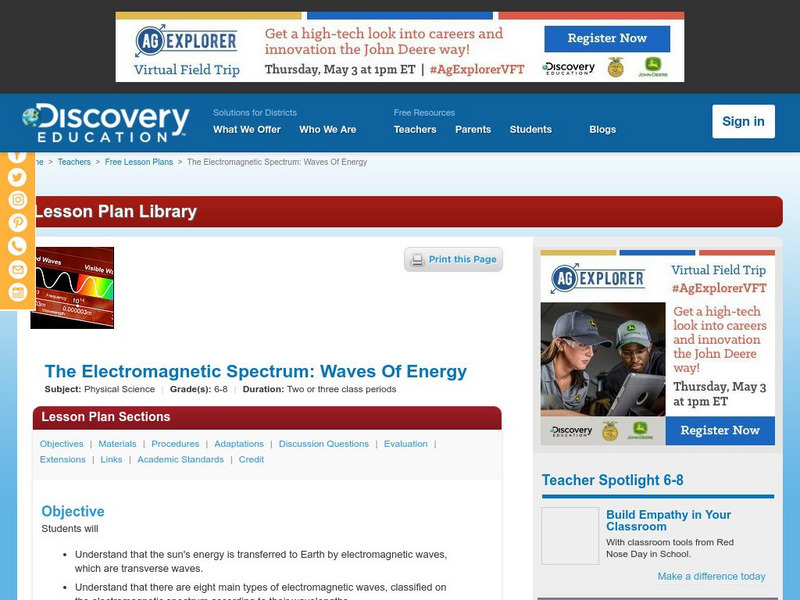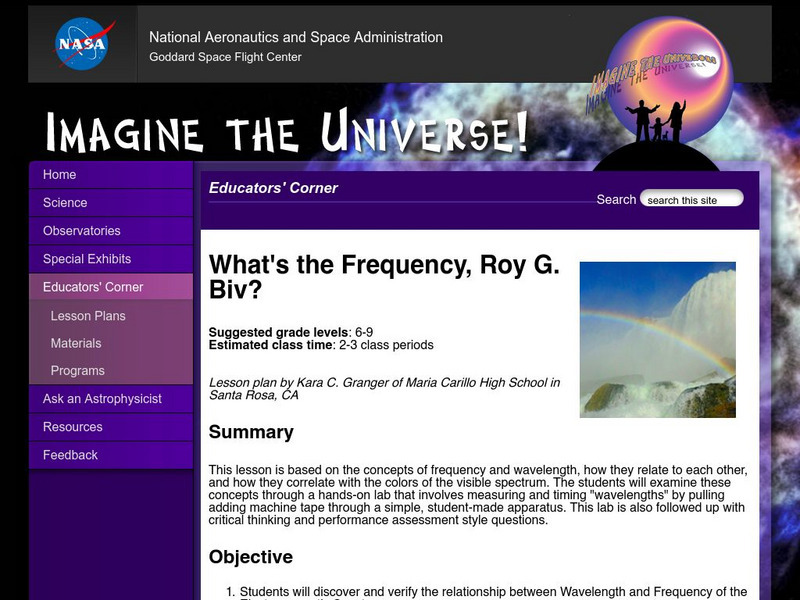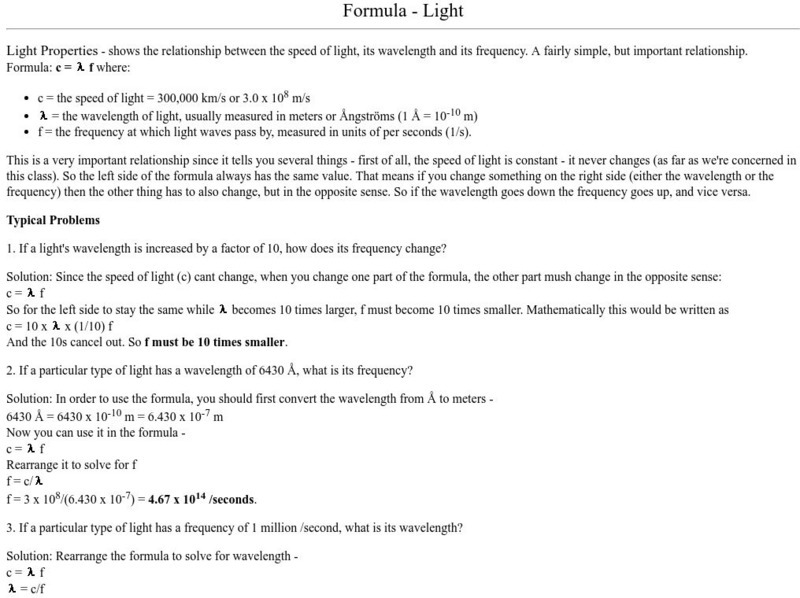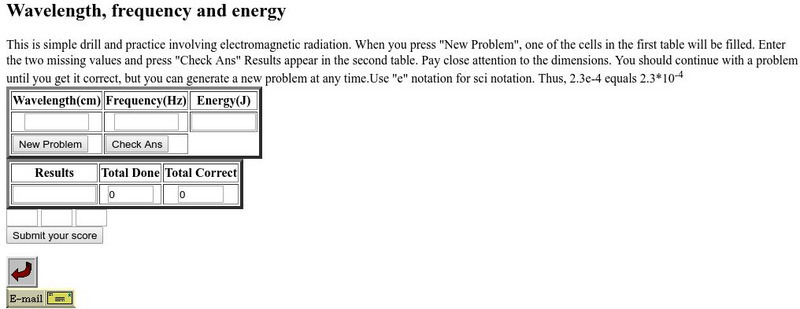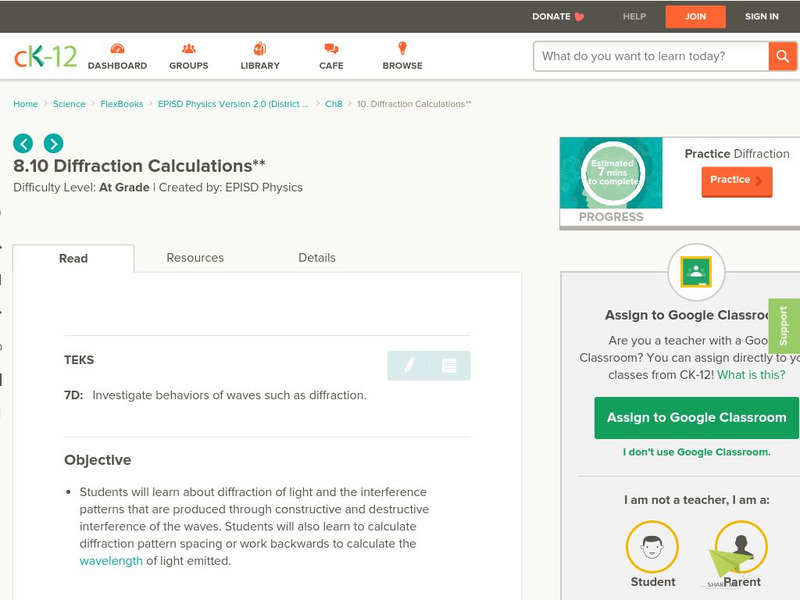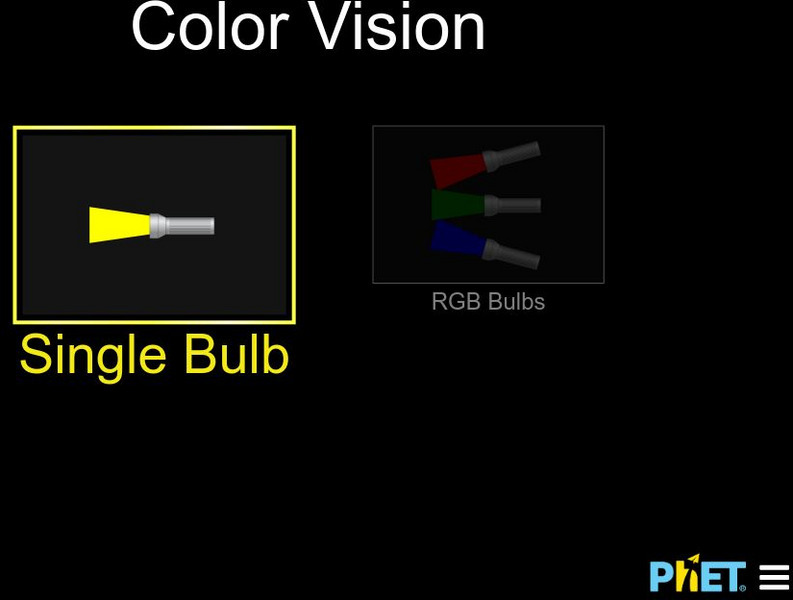CK-12 Foundation
Ck 12: Chemistry Simulation: Neon Lights
[Free Registration/Login Required] Neon lights are a type of discharge tube. Observe how electrons create colored light in a hydrogen gas discharge tube. Can you figure out why hydrogen's emission spectrum contains more than one color of...
NASA
Nasa: Tour of the Electromagnetic Spectrum: Visible Light
Visible light waves are the only electromagnetic waves we can see. We see these waves as the colors of the rainbow. Each color has a different wavelength. Red has the longest wavelength and violet has the shortest wavelength. When all...
TeachEngineering
Teach Engineering: Exploring the Electromagnetic Spectrum
Students learn the basics of the electromagnetic spectrum and how various types of electromagnetic waves are related in terms of wavelength and energy. In addition, they are introduced to the various types of waves that make up the...
University of Colorado
University of Colorado: Physics 2000: Electromagnetic Waves
Using a student-teacher dialogue format, this page discusses the nature of light as an electromagnetic wave and the electromagnetic spectrum.
PBS
Nova Teachers: Einstein Revealed: What's Your Wavelength: Classroom Activity
Investigate the wavelength properties of visible light and the scattering effects of the earth's atmosphere on different wavelengths.
Physics Classroom
The Physics Classroom: Color Addition
This tutorial on the addition of color to light discusses the primary, complimentary, and secondary colors of light.
Discovery Education
Discovery Education: The Em Spectrum: Waves of Energy
Middle schoolers are introduced to the electromagnetic spectrum through this group research activity. Each group investigates a different wavelength range within the em spectrum and reports back to class. Discussion ideas also included.
Georgia State University
Georgia State University: Hyper Physics: Color
This site from Georgia State University discusses the location of visible light on the electromagnetic spectrum. Includes the wavelength values for various colors of light within the visible light spectrum.
NASA
Nasa: Imagine the Universe: What's the Frequency, Roy G. Biv
In this very detailed lesson plan from NASA, students investigate wavelength and frequency within the electromagnetic spectrum.
Physics Central
Physics Central: Physics in the Snow: Snowy Colors
A simple experiment through which students observe the connection between color and heat and prove that dark-colored objects and light-colored objects heat at different rates, even when exposed to the same heat or light source.
University of Colorado
University of Colorado: Physics 2000: Temperature and Absolute Zero
A thorough, multipage discussion of color and color television sets that explains how an image is formed on the television using red, green, and blue light. Understandable discussion, excellent graphics, and many interactive Java applets.
Khan Academy
Khan Academy: Light: Electromagnetic Waves, Electromagnetic Spectrum and Photons
This article discusses the properties of electromagnetic radiation and photons.
Science Struck
Science Struck: Color Spectrum Chart With Frequencies and Wavelengths
Read about the visible light spectrum and learn the frequencies and wavelengths for each of the primary and secondary colors.
Ducksters
Ducksters: Physics for Kids: Light Spectrum
Kids learn about the science of the light spectrum. Wavelengths and frequencies of the electromagnetic waves including visible light, primary colors, and subtractive colors.
Other
Uni: Astronomy: Formula Light
Learn about light properties through practice with formulas. This resource shows the relationship between the speed of light, its wavelength, and its frequency. A fairly simple, but important relationship.
California State University
Electronic Homework: Wavelength, Frequency and Energy
Users solve computational problems concerning the wavelength, frequency, and energy relationships. Fill in the missing values and submit your answers to be corrected.
TeachEngineering
Teach Engineering: The Energy of Light
In this introduction to light energy, students learn about reflection and refraction as they learn that light travels in wave form. Through hands-on activities, they see how prisms, magnifying glasses and polarized lenses work. They also...
CK-12 Foundation
Ck 12: The Quantum Mechanical Model
[Free Registration/Login may be required to access all resource tools.] In the following online tutorial students will calculate the wavelength, frequency, and energy of light using Planck's constant and the speed of light. They will...
CK-12 Foundation
Ck 12: Diffraction Calculations
[Free Registration/Login may be required to access all resource tools.] Students investigate diffraction of light and the interference patterns that are produced through constructive and destructive interference of the waves. Students...
CK-12 Foundation
Ck 12: Wave Speed Calculations
[Free Registration/Login may be required to access all resource tools.] Students investigate and analyze characteristics of waves, including velocity, and calculate the relationship between wave speed, frequency, and wavelength.
University of Colorado
University of Colorado: Ph Et Interactive Simulations: Color Vision
Make a whole rainbow by mixing red, green, and blue light. Change the wavelength of a monochromatic beam or filter white light. View the light as a solid beam, or see the individual photons.
University of Colorado
University of Colorado: Ph Et Interactive Simulations: Blackbody Spectrum
An interactive simulation that teaches about blackbody, sun, light, and quantum mechanics. Students learn my making observations while changing the temperature with a sun, a light bulb, an oven, and the Earth in order to see the changes...
University of Colorado
University of Colorado: Ph Et Interactive Simulations: Color Vision
An interactive simulation that teaches about photons, monochromatic light, white light, and rainbows through changing wavelengths, beams, filters, and color combinations. This simulation can either be downloaded or played online and...
NASA
Nasa: Imagers: The Electromagnetic Spectrum
NASA site provides information on waves, electromagnetic waves and their wavelengths.



